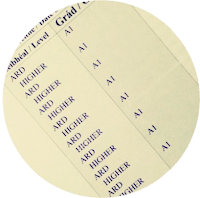Suffering and a vivid imagination are evident in the poetry of Sylvia Plath.
I strongly agree with this statement Plath is a magnificent, but proudly poignant poet. It is hard to forget that she suffered from severe depression and took her own life, when reading her poetry. It is saturated with pain and sorrow. But what makes her a great poet is the way her subject matter is not only profoundly explored but also beautifully framed in vivid complex images. The best poems to illustrate this are “Finisterre,” “Black Rook in Rainy Weather,” “Child,” “Morning Song” and “Poppies in July.” But this statement doesn’t cover all her poetry – “Pheasant” and most of “Morning Song” are quite bright.
It seems as if in “Finisterre” Plath describes not only land’s end but the end of hope also. She discusses organised religion – the concept in which people find refuge, our last and most powerful hope and resort. But Plath rejects that. This provides us with evidence of how depressed and disillusioned she must have been. Her description of “Our Lady of the Shipwrecked” is cold. According to the poet, there us no point in appealing to her:
“But she does not hear what the sailor or the peasant is saying,
She is in in love with the beautiful formlessness of the sea.”
Here Plath comes to the conclusion , that the best we can do is just enjoy what we have and try to make the most of it, but avoid thinking too deeply about it:
“These are our crepes. Eat them before they blow cold.”
Her surrender and loss of hope is further emphasised by the trivial language in that line.
The imagery of this poem is spectacularly tragic! Land’s end – a place so spectacular and beautiful- symbolises negative notions to Plath.
“Fingers knuckled and rheumatic, cramped on nothing.”
Rheumatic? The view inspires thoughts of pathology and degeneration. Rheumatoid arthritis is one of the ailments especially associated with pain and stiffness, Plath must have chosen it for those quality too. “Crumpled on nothing?” That is an image of the emptiness that she experiences in her soul and the pointlessness of it all. This forms the psychic landscape of the poem. Further, the waves remind her of “the faces of the drowned,” she sees soldiers left from “old, messy wars.” That could be her reflection on her own past. She sees rocks that “hide their grudges.” Everything around seems hostile to her. Images of death, coldness, war and emptiness are dominant. Even the trefoils on the cliff are close to death as she sees it, and not beautiful, as most people would view them. The mists are the “souls of the dead” and she cries from walking through those mists. She seems to be in a state of absolute anhedonia and desperation. But she thought of a coping strategy – to stop thinking about it, to focus on the here and now, as if she knows that her thinking patterns are abnormal.
Plath’s emotions are very strong- mists make her cry. Another poem that expresses this side of her is “Poppies in July.”
“It exhausts me to watch you <poppies>. Flickering like that…”
There is an atmosphere of self-destruction in her poems, a stage of depression so deep that it frightens the reader to know of such mental suffering. Plath is in hell:
“Little hell flames, do you do no harm?”
Again, she sees poppies as hostile, just like the rocks in “Finisterre.” Sylvia Plath expresses a death wish in her poem:
“If I could bleed or sleep.”
She is asking for either pain or death. Her mind is so shocked and hurt that she cannot even feel:
“But colourless. Colourless.”
Bright red poppies here contrast with the “colourless” state of her mind. They generally symbolise death they are the colour of blood. This may seem a very simple image but in light of her emotions they acquire a sinister context and are, therefore, even more effective that a more complex comparison and imaginative metaphor.
In one of her earlier poems, “Black Rook in Rainy Weather” Plath expresses her feelings of sadness about the fear of losing inspiration, her depression and suffering that arise from the emptiness of her bland life: “a season of fatigue.” She is looking for random descents that “now and then” interrupt her “fear of total neutrality.” This is reminiscent of her inability too feel in “Poppies in July.” This is very poignant: she sees her life as pure sadness that is relieved by brief flaring of an angel at her elbow…
The imagery of this poem emphasises her emptiness: it is autumn, everything seems bleak with no source of light to the extent where even a black rook seems an inspiration. Plath is waiting for “a certain minor light” that
“…may still
Lean incandescent
Out of kitchen table or chair.
As if a celestial burning took
Possession of the most obtuse objects now and then.”
Here Plath still has hope: the fatigue is a season, i.e. it is temporary, she believes in those “spasmodic tricks of radiance,” but later she loses even that. Inspiration is described using words like “radiance” and “celestial burning” – obviously, to her it is sacred, that is for what she lives. This would imply an imbalance in her soul, to say the least, to the reader and provide an insight into her suffering.
But she is going to be blessed with a baby daughter. Thankfully, this will indeed serve as an inspiration to her. But even in those circumstances Plath’s tormented mind finds a reason to be upset. Plath feels disconnected and diminished, she is confused, but luckily her maternal instincts take over. This array of emotions and aspects of motherhood are explored in “Morning Song.” She adores her baby and loves her:
“Love set you going like a fat gold watch.” This image portrays the precious heartbeat of a newborn baby. However, Sylvia Plath also described her as “new statue… in a drafty museum.” It is hard to understand why Plath compares a newborn, a new life, to an old statue? And why is the museum drafty? This is a reflection of Plath’s bleak outlook and desperation.
Her lack of connection to her baby is expressed through a great memorable image:
“I am no more your mother
Than the cloud that distills the mirror to reflect its own slow
Effacement at the wind’s hand.”
The baby is like a puddle made by the mother, the cloud. The puddle reflects the cloud in the same way the baby and mother are alike. But now that the baby is born the cloud is blown away. Plath feels that her importance is diminished and she is losing touch. But she listens out for her tender “moth-breath” during the night, she adores the “clear vowels rising like balloons.” However, even motherhood is associated with suffering for her confusion – “standing round blankly as wells” and feeling disconnected. The theme of motherhood is also explored in “Child,” which is a terribly poignant poem.





Thanks for this website seriously helpful!!!!!
tankx dis is some serious help 4 my mocks !!
Wonderful notes :)thanks great help
last minute cramming before my pre tomro morning.. exactly what i need, thanks 🙂